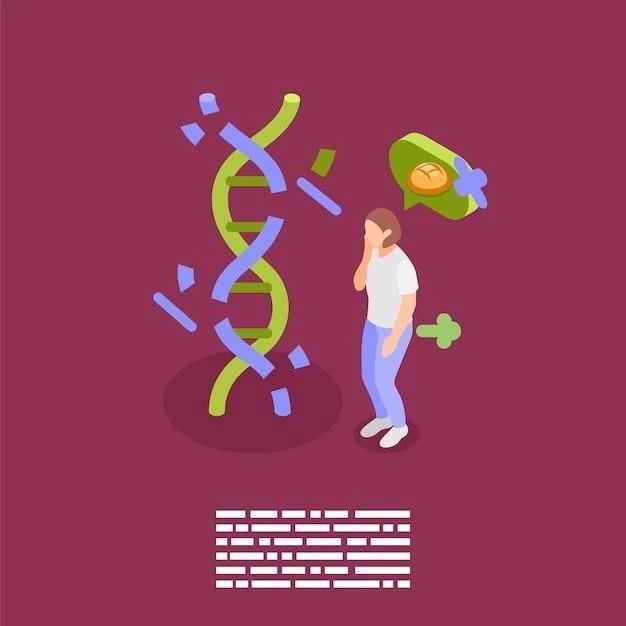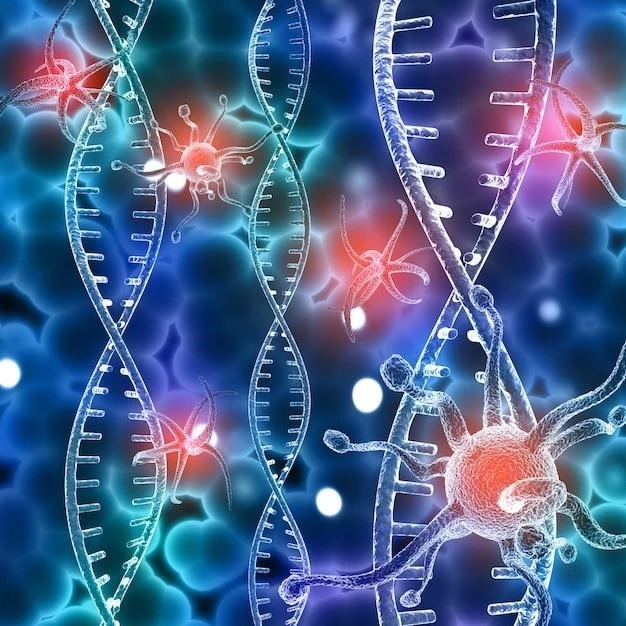Understanding Chromosome 22 Disorders is crucial for individuals affected by Monosome Mosaic Chromosome 22. Explore symptoms‚ genetic causes‚ diagnosis‚ treatment options‚ prognosis‚ research advances‚ support resources‚ and lifestyle management strategies.
Symptoms of Monosome Mosaic Chromosome 22
Individuals with Monosome Mosaic Chromosome 22 may experience a range of symptoms such as developmental delays‚ intellectual disabilities‚ speech and language problems‚ heart defects‚ feeding difficulties‚ and distinctive facial features. Other possible signs include growth delays‚ ear abnormalities‚ and musculoskeletal issues. It is essential to consult a healthcare professional for a proper evaluation and management of these symptoms.
Genetic Causes of Chromosome 22 Monosomy
Chromosome 22 monosomy is typically caused by the loss of all or part of one copy of chromosome 22 in some cells of the body. This genetic anomaly can occur randomly during the formation of reproductive cells or early in fetal development. It is important to consult with a genetic counselor or healthcare provider to understand the specific genetic mechanisms involved in individual cases of chromosome 22 monosomy and how they may impact overall health and development.
Diagnosis and Treatment Options for Monosome Mosaic
Diagnosing Monosome Mosaic Chromosome 22 involves genetic testing to identify the presence of missing genetic material in some cells. Treatment options focus on managing symptoms and addressing specific health needs that may arise due to the chromosomal abnormality. These may include early intervention programs for developmental delays‚ therapies for speech and language issues‚ surgical interventions for heart defects‚ and ongoing medical monitoring. Collaborate closely with a healthcare team to create a comprehensive treatment plan tailored to the individual’s unique requirements.
Prognosis and Long-Term Outlook for Chromosome 22 Disorders
The prognosis for individuals with Chromosome 22 Disorders can vary depending on the specific genetic makeup and associated symptoms. While some individuals may face significant challenges‚ early intervention‚ tailored treatment plans‚ and ongoing medical support can significantly improve outcomes and quality of life. It is essential to work closely with healthcare providers‚ therapists‚ and support networks to address the unique needs of individuals with Chromosome 22 Disorders and access resources for long-term care and well-being.
Research Advances in Monosome Mosaic Chromosome 22
Ongoing research into Monosome Mosaic Chromosome 22 aims to deepen our understanding of the genetic mechanisms underlying this condition‚ develop innovative diagnostic tools‚ and explore novel treatment strategies. Researchers are investigating potential gene therapies‚ precision medicine approaches‚ and targeted interventions to improve outcomes for individuals with Chromosome 22 Disorders. Stay informed about the latest research developments‚ clinical trials‚ and scientific breakthroughs to access cutting-edge treatments and support ongoing advancements in the field.

Support and Resources for Individuals with Chromosome 22 Conditions
Individuals with Chromosome 22 Conditions and their families can benefit from accessing a variety of support services and resources. Organizations dedicated to genetic disorders‚ online communities‚ counseling services‚ and specialized healthcare providers can offer valuable assistance. Seek out local support groups‚ educational materials‚ financial assistance programs‚ and advocacy networks to connect with others facing similar challenges‚ gain knowledge about the condition‚ and access the support needed to navigate the complexities of Chromosome 22 Disorders.
Lifestyle Management for Monosome Mosaic Chromosome 22
Managing the lifestyle of individuals with Monosome Mosaic Chromosome 22 involves creating a supportive environment that addresses their unique needs. Encourage regular physical activity suitable for their abilities‚ promote healthy eating habits‚ establish consistent routines‚ ensure access to educational services tailored to their requirements‚ and provide emotional support and social connections. It’s essential to collaborate with healthcare professionals‚ educators‚ and therapists to develop a holistic lifestyle plan that fosters overall well-being and maximizes the individual’s potential.
